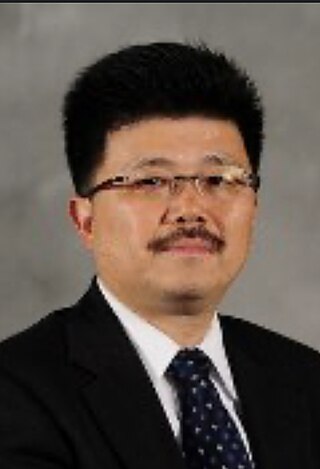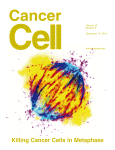Scientific misconduct is the violation of the standard codes of scholarly conduct and ethical behavior in the publication of professional scientific research.
Cancer research is research into cancer to identify causes and develop strategies for prevention, diagnosis, treatment, and cure.

Medical Hypotheses is a not-conventionally-peer-reviewed medical journal published by Elsevier. It was originally intended as a forum for unconventional ideas without the traditional filter of scientific peer review, "as long as are coherent and clearly expressed" in order to "foster the diversity and debate upon which the scientific process thrives." The publication of papers on AIDS denialism led to calls to remove it from PubMed, the United States National Library of Medicine online journal database. Following the AIDS papers controversy, Elsevier forced a change in the journal's leadership. In June 2010, Elsevier announced that "submitted manuscripts will be reviewed by the Editor and external reviewers to ensure their scientific merit".
The Cancer Genome Atlas (TCGA) is a project to catalogue the genetic mutations responsible for cancer using genome sequencing and bioinformatics. The overarching goal was to apply high-throughput genome analysis techniques to improve the ability to diagnose, treat, and prevent cancer through a better understanding of the genetic basis of the disease.

Metastasis-associated protein MTA3 is a protein that in humans is encoded by the MTA3 gene. MTA3 protein localizes in the nucleus as well as in other cellular compartments MTA3 is a component of the nucleosome remodeling and deacetylate (NuRD) complex and participates in gene expression. The expression pattern of MTA3 is opposite to that of MTA1 and MTA2 during mammary gland tumorigenesis. However, MTA3 is also overexpressed in a variety of human cancers.
Carlo Maria Croce is an Italian–American professor of medicine at Ohio State University, specializing in oncology and the molecular mechanisms underlying cancer. Croce and his research have attracted public attention because of multiple allegations of scientific misconduct.

Ming-Ming Zhou is an American scientist who focuses on structural and chemical biology, NMR spectroscopy, and drug design. He is the Dr. Harold, Golden Lamport Professor, and Chairman of the Department of Pharmacological Sciences. He is also the co-director of the Drug Discovery Institute at the Icahn School of Medicine at Mount Sinai and Mount Sinai Health System in New York City, as well as Professor of Sciences.
Scientific Reports is a peer-reviewed open-access scientific mega journal published by Nature Portfolio, covering all areas of the natural sciences. The journal was established in 2011. The journal states that their aim is to assess solely the scientific validity of a submitted paper, rather than its perceived importance, significance, or impact.
Scholarly peer review or academic peer review is the process of having a draft version of a researcher's methods and findings reviewed by experts in the same field. Peer review is widely used for helping the academic publisher decide whether the work should be accepted, considered acceptable with revisions, or rejected for official publication in an academic journal, a monograph or in the proceedings of an academic conference. If the identities of authors are not revealed to each other, the procedure is called dual-anonymous peer review.
Gopal Chandra Kundu is an Indian cell and cancer biologist and a Senior Scientist (Scientist-G) at National Centre for Cell Science. He is known for his contributions towards the understanding the mechanism of cancer progression in breast, melanoma and other cancers and development of novel therapeutic targets and target-based therapy in cancers.
Frontiers Media SA is a publisher of peer-reviewed, open access, scientific journals currently active in science, technology, and medicine. It was founded in 2007 by Kamila and Henry Markram. Frontiers is based in Lausanne, Switzerland, with other offices in London, Madrid, Seattle and Brussels. In 2022, Frontiers employed more than 1,400 people, across 14 countries. All Frontiers journals are published under a Creative Commons Attribution License.

Demetrios A. Spandidos is a Greek virologist and cancer researcher. He is an emeritus professor at the University of Crete where he was professor of virology from 1989 till 2015. He is also the founder of Spandidos Publications and the editor-in-chief of all eight of its journals.
Douglas D. Taylor is an entrepreneur and former academic researcher in the field of extracellular vesicles.

Harvey Max Chochinov is a Canadian academic and psychiatrist from Winnipeg, Canada. He is a leading authority on the emotional dimensions of end-of-life, and on supportive and palliative care. He is a Distinguished Professor of Psychiatry at the University of Manitoba and a Senior Scientist at CancerCare Manitoba Research Institute.

The He Jiankui affair is a scientific and bioethical controversy concerning the use of genome editing following its first use on humans by Chinese scientist He Jiankui, who edited the genomes of human embryos in 2018. He became widely known on 26 November 2018 after he announced that he had created the first human genetically edited babies. He was listed in the Time's 100 most influential people of 2019. The affair led to ethical and legal controversies, resulting in the indictment of He and two of his collaborators, Zhang Renli and Qin Jinzhou. He eventually received widespread international condemnation.

The UK Coronavirus Cancer Programme or UKCCP is one of the longest running UK pandemic research programmes to safeguard, monitor and protect individuals living with cancer from COVID-19 across the United Kingdom.

Dan Theodorescu is an American physician and academic. He is the Director of the Samuel Oschin Comprehensive Cancer Institute at the Cedars-Sinai Medical Center and leader of Cedars-Sinai CANCER. From 2010 until 2018, Theodorescu was Director of the University of Colorado Cancer Center and a professor of Surgery-Urology. He has been appointed Paul Mellon Chair at the University of Virginia and Paul Bunn Chair and Distinguished University Professor at the University of Colorado.
Karen E. Knudsen is Chief Executive Officer of American Cancer Society and its advocacy affiliate the American Cancer Society Cancer Action Network. She is the first woman to hold that position in either organization.

Alberto Bardelli is an Italian geneticist and cancer researcher, expert in the field of precision medicine. He is a full professor of histology at the Department of Oncology, University of Turin and Scientific Director of IFOM, the AIRC Institute of Molecular Oncology.









